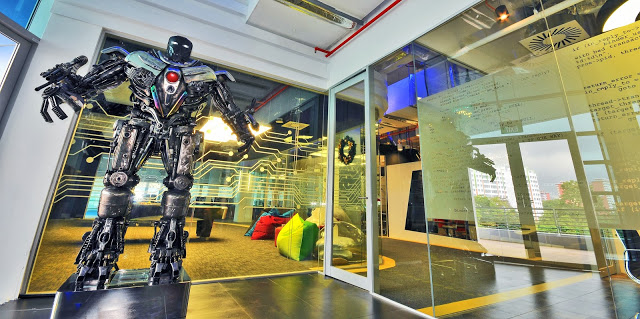

Artificial intelligence (AI) is dividing opinions on the impact it will have on the job market, with some organisations predicting the smart technology will create jobs and others speculating big job losses in their own ranks.
BT conducted a survey into the affects 1,501 IT decision makers, from a both large and small companies, think AI will have on their organisation.
Another third predicts big job losses in their organisations due to AIs and robots simply replacing the jobs done by humans, particularity those roles that are manual and repetitive in nature.
Despite the risk AI could pose to future jobs, one in three of the IT decision makers surveyed noted they are planning to invest in AI technology over the next two years, with 62 percent noting their organisations could be more effective as a result.
Given concerns over job losses, this raises questions as to who should take responsibility over the adoption of AI and the affect it can have on a human workforce.
“While some organisations clearly view disruptive technologies as a potential threat to the labour market, we believe the introduction of new automated technologies and business processes will play to the strengths of both people and machines,” he said.
“A good example of this is where BT’s world leading security team is using Machine Assisted Cyber Threat Hunting to proactively identify cyber security threats. This combines AI and big data techniques with the use of human analysts who are critical in providing the context and judgement needed to distinguish between anomalous and malicious activity.”
Aside from the impact on jobs, cyber security appears to be another major barrier to the widespread adoption of AI, with 44 percent of survey respondents working in the public sector believing their organisations will be open to cyber attacks with greater use of AI technology.
The AI systems currently on offer and in place in organisations are still fairly basic autonomous systems that still need a fair bit of human oversight. So until the technology industry starts producing smart machines that can do a job equal or better than humans, the survey results are arguably based on speculation.
For example, voice cognition systems are getting more advanced, but call centres are still filled with humans chatting into headsets. And while there are robotic assistants powered by IBM’s Watson cognitive computing technology, they have yet to replace human receptionists and concierge services at hotels.
AI development is happening whether we like it or not, but perhaps the concerns around the rise of the machines are a tad exaggerated at the moment, given one could debate that AI has yet to have the disruption that other basic automation systems like the assembly line had on the manufacturing world.
Put your knowledge of artificial intelligence to the test. Try our quiz!
Apple reportedly working on lighter, cheaper Vision Pro, another model that links directly to Mac…
OpenAI says GPT-4.1 model family can understand prompts with up to 1 million tokens, features…
Blue Origin jaunt sends Jeff Bezos fiancée Lauren Sanchez into space along with Katy Perry…
Meta to use public posts from EU users on Facebook, Instagram to train AI models…
Apple tops smartphone sales worldwide in first quarter after iPhone 16e launch, in spite of…
Intel sells 51 percent of programmable chip unit Altera to Silver Lake Partners in deal…